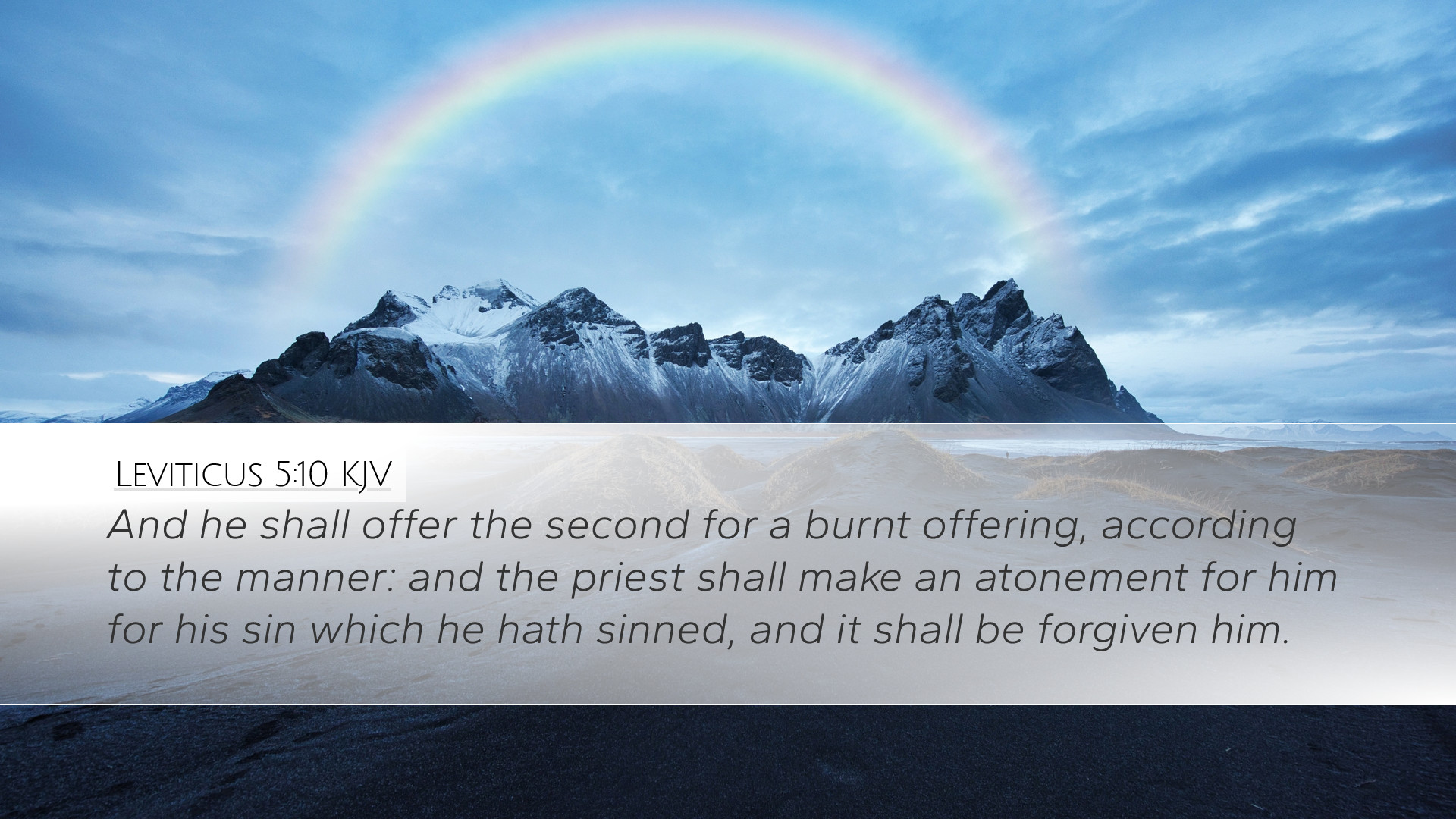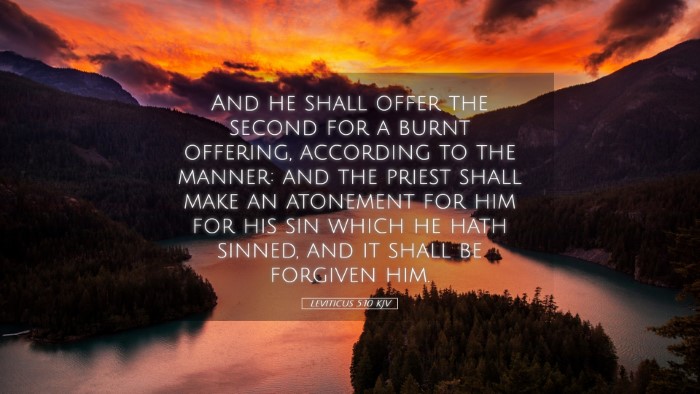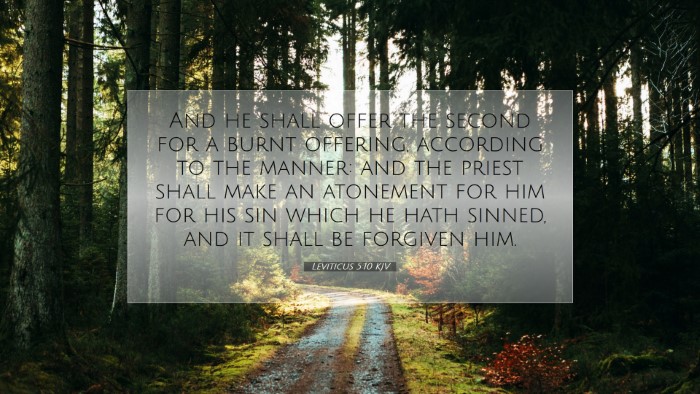Commentary on Leviticus 5:10
Bible Verse: "Then he shall offer the second as a burnt offering according to the ordinance. So the priest shall make atonement on his behalf for his sin which he has committed, and it shall be forgiven him." (Leviticus 5:10 NASB)
Introduction
This verse provides significant insight into the sacrificial system established by God for the Israelites. It encapsulates the dual nature of atonement through sacrifice, reflecting both personal responsibility towards sin and the communal practices of worship and atonement that bind Israel together in their covenant relationship with God.
Contextual Analysis
In the context of Leviticus, the chapter deals with various sin offerings, explicating the procedures for atonement for unintentional sins, which is a vital process in the life of Israel. The sacrificial system serves as a means for the people to maintain their covenant with God by addressing their sins through prescribed actions.
Matthew Henry's Commentary
Matthew Henry emphasizes that this offering represents the seriousness of sin. He points out that the burnt offering symbolizes total dedication to God. Henry notes that the second offering, after the guilt offering, serves to emphasize the need for atonement and the restoration of proper fellowship with the Lord. He stresses that forgiveness comes through the priest's intercession, highlighting the role of the priest as a mediator.
Albert Barnes' Commentary
Albert Barnes provides a detailed explanation of the sacrificial ordinances. He notes that the burnt offering was a specific action mandated by God that represented complete surrender and dedication. According to Barnes, this illustrates the comprehensive nature of atonement, where both the personal acknowledgment of sin and the communal worship through a burnt offering are vital. He also emphasizes the assurance of forgiveness following the proper offering, showcasing God’s grace in the covenant relationship.
Adam Clarke's Commentary
Adam Clarke's analysis emphasizes the practical aspects of the sacrificial law. He delves into the cultural significance of the burnt offering, stating that it represents a person’s commitment to live in accordance with God’s will after atonement is sought. Clarke also remarks on the text's implications regarding the nature of sin – that it requires an active response through sacrifice and restitution to God, highlighting that true repentance is accompanied by actions.
Theological Reflections
The sacrificial system, as highlighted by this verse, represents a profound theological truth: sin impacts one's relationship with God, and restoration is possible through divinely ordained means. The notion that offerings must be made for various types of sin underscores a key biblical principle: that God is both holy and merciful. This balance is pivotal for understanding the character of God in the Old Testament.
Responsibility and Atonement
Leviticus 5:10 reiterates the individual's responsibility in acknowledging their sinfulness and actively seeking atonement. The prescribed actions reflect a serious commitment to moral integrity and communal harmony. It resonates with the biblical theme that sin must be addressed and cannot be ignored. The act of bringing offerings was a physical manifestation of repentance and restoration.
Implications for Modern Faith Communities
This verse has profound implications for modern believers. While the sacrificial system is no longer applicable in the same way due to the ultimate sacrifice of Christ, the principles of confession, repentance, and seeking atonement remain vital. Celebrating the grace found in Christ reminds pastors and theologians that the call to holiness and reconciling broken relationships is as essential today as it was in the ancient Jewish context.
Conclusion
In summary, Leviticus 5:10 encapsulates vital themes of confession, atonement, and the importance of proper worship in the community of faith. Through the insights drawn from both classical and modern commentaries, we gain a deeper understanding of the holistic nature of the law regarding sin and the character of God as gracious and forgiving. Pastors and students studying this verse are invited to reflect on their personal sin and the communal implications of approaching God with sincerity and a repentant heart.


